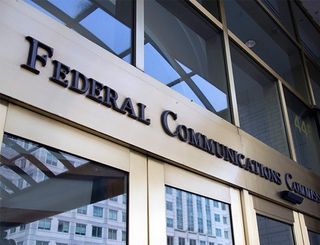Exclusive: TV Stations Eye Selling Spectrum Twice

Broadcasters who decide to put spectrum in the upcoming incentive auction could have the opportunity to sell it twice.
Jan. 12 is the deadline for broadcasters to signal they are potentially putting spectrum in the auction and some of those broadcasters are busy figuring out what auction play makes the most sense for them.
According to a source familiar with their thinking, some “major” broadcasters are looking at putting spectrum in the pot and, if they win, taking advantage of tax laws to keep that money in escrow and use more cash, or a loan, to bid on some of that reclaimed broadcast spectrum in the forward auction—they would need to use other money since reverse payments won’t be available until both sides of the auction closes. They could then sell or lease the spectrum to wireless carriers hungry for it.
Of course, there are other stations still trying to decide whether to participate once.
There is some financial risk involved since winning bidders are only provisional winners until the forward auction closes. If the forward auction does not close at its initial clearing target—say the FCC does not collect enough from wireless operators to pay all the broadcasters or does not get a set minimum price in major markets—the FCC starts a new round of reverse bids at a lower target, which means it needs fewer stations, which means it lowers prices until some stations drop out and the winning bidders could change.
That means there is at least the potential of buying forward spectrum but not winding up being the winning bidder in the reverse auction after all. But even then, so long as the broadcaster had the cash—or a loan—it would have valuable spectrum that could get more valuable with time.
What could make the double sale an attractive play is the fact that the FCC is reserving some of the best spectrum—the least impaired by potential interference—for competitors to AT&T and Verizon, which would include broadcasters. Those carriers might be willing to pay a premium to get it on the secondary market down the road—broadcasters would have to hold it for five years before being able to resell it to either of those major carriers per FCC auction rules—particularly if the vaunted spectrum crunch continues to put a premium on that spectrum.
Broadcasting & Cable Newsletter
The smarter way to stay on top of broadcasting and cable industry. Sign up below
Related: New Bill Would Provide $1 Billion Auction Emergency Fund
The FCC does have rules in place to prevent unjust enrichment from flipping spectrum.
Bidders on the reserve spectrum AT&T and Verizon can’t bid on, or at least not bid on initially, won’t be able to resell to those carriers for six years. Then there is an interim build-out requirement of 40% of facilities within those six years. But broadcasters could miss that deadline, said the source, with at least potentially no penalty except to have to shorten the 12-year 75% buildout requirement to 10 years. But with the ability to resell the spectrum to AT&T and Verizon after 6 years, they can effectively hold it then sell it without having to build out—though the buyer would have to build out on that abbreviated timetable. In addition, they could immediately re-sell reserve spectrum to other carriers than the low-band dominant ones, or sell unreserved spectrum to anyone, including AT&T and Verizon, immediately.
But there is an “enhanced” FCC review of post-auction spectrum sales of low-band spectrum to anyone who would then have at least one-third of low band in a market, so that could be another X factor in the equation.
Broadcasters are said to be building those factors into their business models as they contemplate participating in both the forward and reverse auction.
Key to the plan would be tax laws that allow deferral of taxes on so-called “like-kind” exchanges of similar properties, like deferring capital gains when putting the proceeds of one primary residence into the purchase of another.
The spectrum exchange would appear to qualify as a like-kind exchange under the tax code.
Broadcasters would have to leave the money they get from the incentive auction in escrow or in the hands of a “qualified intermediary,” then bid on the spectrum in the forward auction (the IRS talked about like-kind deferrals in the context of channel sharing in a letter to the FCC with advice on the tax implications of the auction).
If “qualified intermediary” sounds familiar, that is because in “clarifying” its incentive auction rules in November, and saying it hoped that would be another spur to broadcaster participation in the incentive auction, the FCC's Wireless Bureau said it would make incentive auction payments to designated third parties, including “qualified intermediaries,” not just the broadcaster who applied for the auction.
That would be both a help to channel sharers per the IRS advisory, and a boon to those looking to measure once and sell twice, as it were.
Contributing editor John Eggerton has been an editor and/or writer on media regulation, legislation and policy for over four decades, including covering the FCC, FTC, Congress, the major media trade associations, and the federal courts. In addition to Multichannel News and Broadcasting + Cable, his work has appeared in Radio World, TV Technology, TV Fax, This Week in Consumer Electronics, Variety and the Encyclopedia Britannica.

